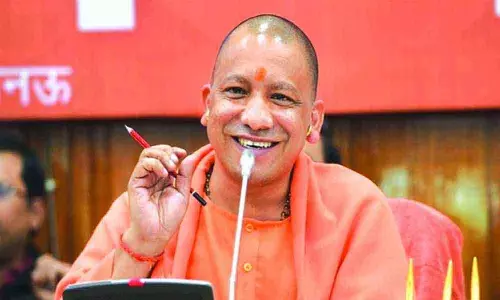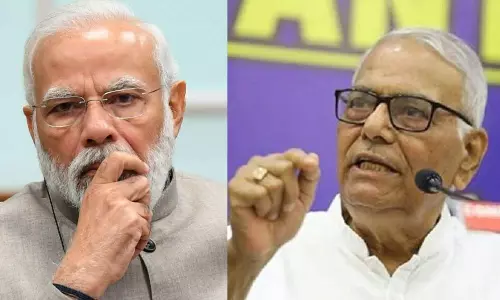
Judge, who allowed puja at Gyanvapi masjid, appointed as Ombudsman at UP University
text_fieldsJudge Ajaya Krishna Vishvesha, the Varanasi district judge who ruled allowing the Hindu side in the basement of the Gyanvapi Masjid before retiring, has been appointed as the ombudsman of Dr Shakuntala Misra National Rehabilitation University in Lucknow, The Wire reported.
Vishvesha's appointment comes less than a month after he granted permission for Hindus to worship in the basement of the Gyanvapi Masjid, a decision that sparked a legal and religious debate.
The retired judge, known for his involvement in sensitive temple-mosque disputes, will now serve as the university's lokpal (ombudsman) for a tenure of three years. His role will involve addressing grievances and conflicts among students, a crucial responsibility in ensuring a conducive academic environment.
The decision to appoint Vishvesha has stirred controversy due to his recent involvement in the Gyanvapi Masjid case, where he permitted Hindu prayers in the disputed basement area. Critics argue that his appointment raises questions about impartiality and fairness, especially considering the sensitive nature of his previous rulings.
However, university officials maintain that Vishvesha's selection aligns with guidelines set forth by the University Grants Commission (UGC), which stipulate that the ombudsman should preferably be a retired judicial figure. They emphasize the importance of having a seasoned legal expert to handle student grievances effectively.
Vishvesha's background as a district judge, coupled with his experience in handling complex legal matters, makes him a suitable candidate for the position, according to university spokesperson Yashwant Viroday.
The controversy surrounding Vishvesha's recent judicial actions adds a layer of scrutiny to his new role. His decision to allow Hindu worship in the Gyanvapi Masjid basement, despite objections from the mosque's management committee, has been met with criticism and legal challenges.
The Allahabad High Court recently ruled in favour of continuing Hindu prayers in the disputed area, dismissing objections raised by the mosque's caretakers. The court's decision, however, did not quell concerns over the legality and propriety of Vishvesha's actions.
Critics argue that Vishvesha's last-minute decision on his final working day to modify an earlier order, granting access to the basement for Hindu prayers, raises suspicions of ulterior motives. The timing of his decision, coupled with his involvement in contentious temple-mosque disputes, has fuelled speculation about the impartiality of his judicial conduct.
In response to criticisms, Vishvesha defended his actions, stating that his decisions were made in accordance with established legal principles and procedures. He dismissed allegations of bias, asserting that he strictly adhered to the law in all his rulings.
























